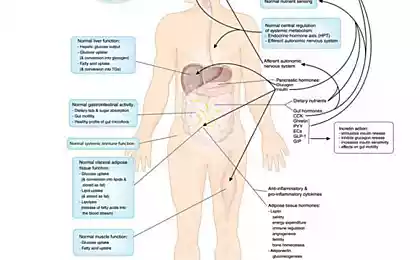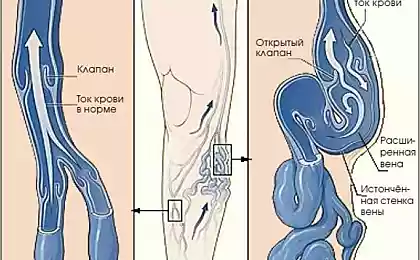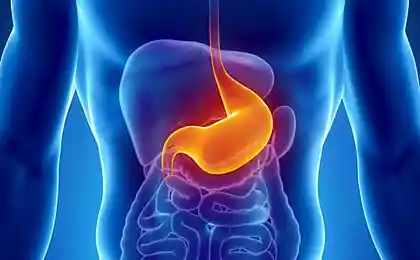231
5 Ayurvedic Ways to Overclock Metabolism

"Ecology of health" - this term is increasingly used when it comes to a harmonious approach to nutrition, lifestyle and understanding how to properly maintain the body in tone. From normal digestion directly depends on the figure, health and mood of any person. It would seem that we live in an era of high technology and scientific research, and many people still suffer from metabolic disorders, overweight and associated health risks.
However, alternative medicine and ancient traditions do not lose their popularity. Indian Ayurveda – the science of “long life”, based on the centuries-old experience of healers – continues to win minds, offering not only exotic recipes, but also systemic approaches to maintaining proper metabolism. Ayurveda focuses on understanding natural rhythms, the individual constitution (dosha), and the importance of emotional balance.
In this article, we will understand what techniques of Ayurvedic practice are most effective in order to “disperse” metabolism, restore the health of the digestive system and achieve overall well-being. The material is intended for a wide audience and is written with popular science depth, but without excessive specificity, so that the information is accessible and useful in the long run. If you want to improve your digestive processes and help your body properly absorb nutrients, these recommendations can be a great starting point.
Main part
1. Warm up the internal “fire of digestion” with spices
Ayurveda believes that a special energy is responsible for the correct metabolism, called “agni” – “fire of digestion”. If this fire is weak, food is not digested properly and toxins (ama) accumulate in the body. One simple way to increase agni is to include certain spices in the diet.
- Ginger: It has a warming effect, enhances blood circulation and helps the body quickly process food.
- Turmeric: powerful natural antiseptic and antioxidant. It is believed that it facilitates the work of the liver and improves the general condition of the gastrointestinal tract.
- Zira (kumin): stabilizes digestion, reducing the likelihood of bloating and discomfort in the abdomen after heavy food.

2. Practice conscious eating
From the point of view of Ayurveda, it is not only what we eat, but also how we do it. Conscious eating suggests that you are concentrating on the process: not distracted by the phone, TV or reading, but feel the taste of each piece, watch for feelings of satiety and stop in time.
Why is this so important for metabolism? When we rush and consume food “on the machine”, the brain and digestive system lose synchronization, as a result of which you can eat more than you need, or incorrectly “mix” different types of food. Ayurveda recommends sitting down at the table in a calm mood and enjoying the process of eating as if it were a mini-ritual.
- Schedule meal times: Try to take at least a 15-20 minute break from work or school.
- Eat in silence: It helps to notice the body signals about satiety.
- Combine products wisely: Avoid eating incompatible foods at the same time (such as milk and salty foods).
3. Herbal teas and infusions to improve digestion
In Ayurveda, herbs and plants are often used to strengthen agni and maintain the balance of doshas. Popular ingredients for creating metabolic teas and infusions:
- Triphala: Classical Ayurvedic formula of three fruits (haritaki, amalaki and bibhitaki). It is believed that it gently cleanses the intestines, removes toxins and improves metabolic processes.
- Fennel: helps reduce bloating, facilitates the work of the gastrointestinal tract and gives a pleasant aroma to drinks.
- Coriander and cardamom: calm an irritated stomach, promote better digestibility of nutrients.
4. Day regime and yogic practices
Metabolism is closely related to hormonal background and circadian rhythms, so the stability of the daily routine often has no less effect on digestion than the diet itself. Ayurveda advises getting up and going to bed at the same time, trying to synchronize with the natural sun-moon cycle.
Additionally, moderate physical activity gives a strong effect on the acceleration of metabolism, preferably in the morning. Yoga asana complexes (in particular, Surya Namaskar) help gently “wake up” the body, improving blood circulation and enhancing the work of the digestive glands. Regular sessions of 15-20 minutes can take you to a new level of energy.
Interestingly, studies published in Frontiers in Endocrinology point to the beneficial effects of soft yoga not only on muscles and joints, but also on the endocrine system that regulates metabolic processes. The body responds to such practices by reducing stress levels, which also indirectly affects the improvement of metabolism.

5. Detox through oil treatments and massage
In Ayurvedic teachings, procedures aimed at removing toxins and improving the circulation of energy in the body play a significant role. The traditional Abhyang oil massage or daily light rubbing with warm oil before a shower is not only a way to relax, but also a way to “disperse” the lymph flow, improving metabolism at the cellular level.
For this massage, sesame oil or ghee oil (purified melted oil) are often used, which pleasantly warms the body and nourishes the skin. It is believed that such procedures remove "amu" (toxins) from deeper tissues, contributing to lightness and increased energy. Due to this, digestion improves and excess calories burn faster.
- Advantages of Abhyangi: muscle relaxation, improvement of the nervous system, acceleration of metabolism.
- How often to practice: Ideally – daily, but at least 2-3 times a week.
- Caution: in the presence of skin diseases or allergies to oil, it is important to consult a specialist in advance.
Conclusion
You can accelerate metabolism in dozens of ways, and it is not necessary to adhere exclusively to Ayurvedic practices. Nevertheless, the experience accumulated by this ancient science suggests simple and natural steps that help maintain stable digestion, strengthen immunity and keep the spirit alert.
The main idea of Ayurveda is complexity. A balanced diet with the right spices, moderate physical activity, a regular regimen of the day and special detox procedures create a synergistic effect. The result is not reduced to simple weight loss: a person acquires increased performance, emotional balance and a qualitatively different perception of his own body.
Try to implement these methods gradually, listening carefully to the signals of your body. If necessary, seek advice from specialists - Ayurvedic doctors or certified yoga trainers. Keep in mind that for a health ecology to be clean, it’s not just what we eat or drink that matters, but how we live our lives day in and day out. When all the elements of the lifestyle are harmoniously combined, the metabolism builds itself - and the body thanks you with stable energy and good health.
Emergence: The mystery of the whole that is greater than the sum of the parts
9 Ways to Be Open and Honest With Yourself























